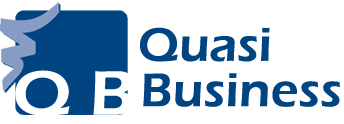Your employer is letting you sign up for a flexible spending account (FSA). What is an FSA? An FSA is a tax-advantaged savings account that allows employees to set aside a portion of their earnings for specific healthcare expenses. The account can help you handle out-of-pocket medical costs and fill in some of the significant gaps left by your health insurance.
Before you sign up for an FSA, you should learn these essential facts about the account.
1. Your FSA Has Limits
You can only put away so much in your FSA. The IRS has set the maximum salary deferral contribution as $3,050 this year —this is $200 more than the maximum in 2022.
Your employer might push you past that maximum. Employers are free to add to their employees’ FSAs if they wish, even if it pushes the total past the $3,050 maximum. The IRS has a different set of limitations for employer contributions.
2. Your Balance Does Not Roll Over
Your FSA balance isn’t meant to rollover into the next year. If you don’t use it, you’ll lose it. That’s right — the remaining balance will disappear if you neglect to spend it by the time you reach the year-end deadline.
While last year’s balance won’t officially rollover, you might have some extra time to spend your remaining funds in the new year. The IRS allows FSA users to have grace periods for up to 2.5 months to spend what’s left of their funds from last year. This grace period will have to be approved by your employer. So, discuss your options with them before you breathe a sigh of relief.
What if your employer doesn’t offer a grace period? In that case, they might allow you to carry up to $610 in the following year.
3. Your FSA Can Help with Emergency Expenses
Your FSA can be extremely useful when it comes to covering urgent expenses outside of your budget. You could use it to cover an emergency trip to your dentist’s office after a dental crown falls out. You could use it to cover a round of prescription antibiotics to recover from a surprise infection. You could use it to buy crutches after you slip on a patch of ice on the sidewalk.
While your FSA can be useful for small emergencies, it shouldn’t be your only safety net for these scenarios. You’ll still want to have an emergency fund full of savings. An emergency fund can help you manage expenses that your FSA won’t cover, like home repairs, car repairs and appliances. Secondly, it can help you when your FSA balance runs low.
Without an emergency fund, you might not have enough to cover an emergency expense when it crops up. In that case, you’d have to consider something like an online loan as a solution. As long as you meet all of the requirements, you can apply quickly for an online loan and wait to see if you get approved. An approved loan would give you the necessary funds to cover your emergency expense in a short amount of time. Once that’s paid, you would simply need to follow a loan repayment plan through a monthly billing cycle.
4. You Can Use It to Fill Up Your Medicine Cabinet
An FSA isn’t just useful for emergency medical expenses. It can be used for a more mundane purpose, like filling up your medicine cabinet. These are just some of the qualified expenses you can claim:
- Allergy medicine
- Antacids
- Cold & Flu medicine
- Cough syrup
- Cough drops
- First aid kit supplies
- Hand sanitizer
- Nasal spray
- Nasal strips
- Menstrual products
- Pain relievers
- Sunscreen
- Wart removal treatments
Now you know exactly what an FSA can offer you. Do you think you’ll sign up for the account?
















